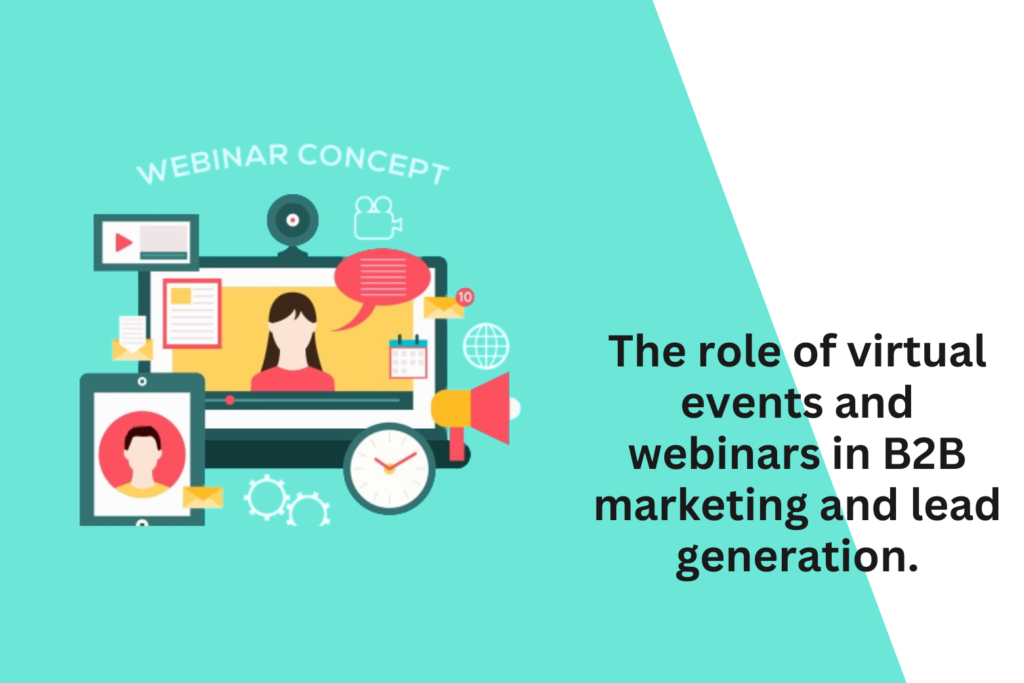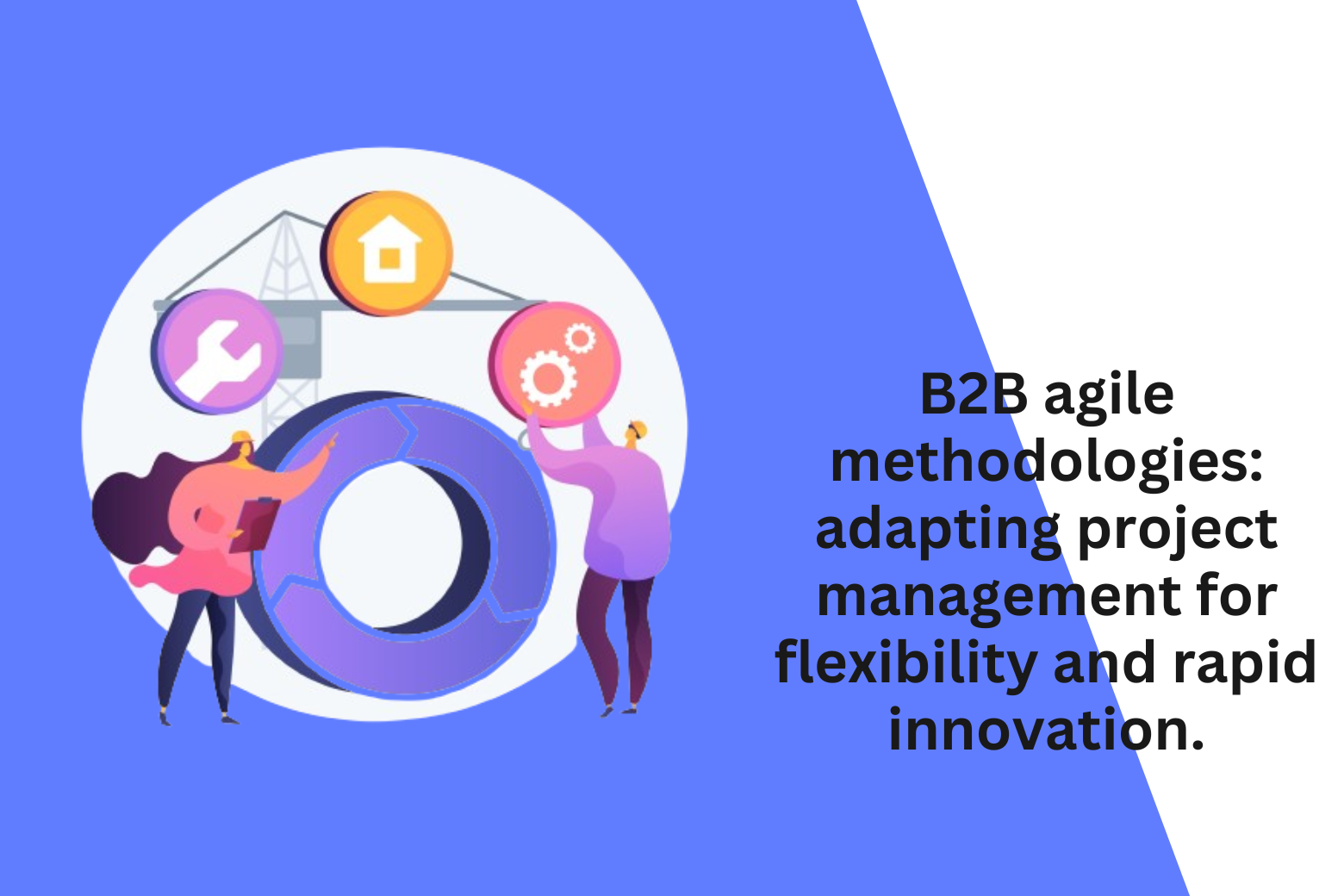
Virtual events and webinars have become integral components of B2B marketing strategies, offering unique opportunities for engagement, education, and lead generation. Here’s an exploration of the key roles that virtual events and webinars play in B2B marketing and lead generation:
1. Audience Engagement:
Global Reach:
- Opportunity: Virtual events and webinars allow B2B organizations to reach a global audience without the constraints of physical location, enabling broader participation.
- Benefit: Increased accessibility and potential for engagement with diverse audiences.
Interactive Features:
- Opportunity: Incorporate interactive elements such as Q&A sessions, polls, and live chats to engage participants actively during virtual events and webinars.
- Benefit: Enhanced audience participation and a more dynamic and engaging experience.
2. Educational Opportunities:
Thought Leadership:
- Opportunity: B2B organizations can position themselves as thought leaders by hosting webinars that provide valuable insights, industry trends, and expert knowledge.
- Benefit: Establishing credibility and authority in the industry, which can positively influence lead perception.
Product Demonstrations and Training:
- Opportunity: Virtual events are ideal for showcasing products, demonstrating features, and providing hands-on training to potential customers.
- Benefit: Improved understanding of products or services, facilitating informed decision-making.
3. Lead Generation:
Registration and Attendee Data:
- Opportunity: Collect valuable lead information through webinar registrations, providing a pool of potential leads interested in the topic.
- Benefit: Building a targeted audience for future marketing efforts.
Follow-Up Opportunities:
- Opportunity: Virtual events provide natural opportunities for follow-up engagement, such as sending post-event emails, surveys, or exclusive offers.
- Benefit: Continuing the conversation and nurturing leads post-event.
Networking Opportunities:
- Opportunity: Incorporate networking features, such as virtual breakout sessions or discussion forums, allowing attendees to connect with each other.
- Benefit: Facilitating relationship-building among attendees and potential collaboration opportunities.
4. Cost-Effectiveness:
- Reduced Expenses:
- Opportunity: Hosting virtual events and webinars can be more cost-effective than traditional in-person events, eliminating expenses related to venue, travel, and accommodation.
- Benefit: Maximizing budget allocation for marketing and lead generation activities.
5. Metrics and Analytics:
Tracking and Analytics:
- Opportunity: Virtual events offer robust analytics and tracking capabilities, providing insights into attendee behavior, engagement levels, and conversion metrics.
- Benefit: Informed decision-making based on data-driven insights for future marketing strategies.
ROI Measurement:
- Opportunity: Virtual events allow for clear measurement of return on investment (ROI) through metrics such as lead conversions, attendee satisfaction, and post-event engagement.
- Benefit: Demonstrating the impact of virtual events on the overall marketing and sales goals.
6. Adaptability and Flexibility:
- Responsive to Market Conditions:
- Opportunity: Virtual events offer flexibility and adaptability, allowing B2B organizations to quickly respond to market changes, trends, or unforeseen circumstances.
- Benefit: Ensuring continuity in marketing efforts despite external factors.
Conclusion:
Virtual events and webinars have become pivotal tools in the B2B marketer’s arsenal, offering a versatile platform for engagement, education, and lead generation. By leveraging the opportunities presented by virtual events, B2B organizations can enhance their reach, build thought leadership, generate leads, and measure the impact of their marketing efforts with greater precision. The evolving landscape of digital communication makes virtual events a valuable and dynamic component of comprehensive B2B marketing strategies.



